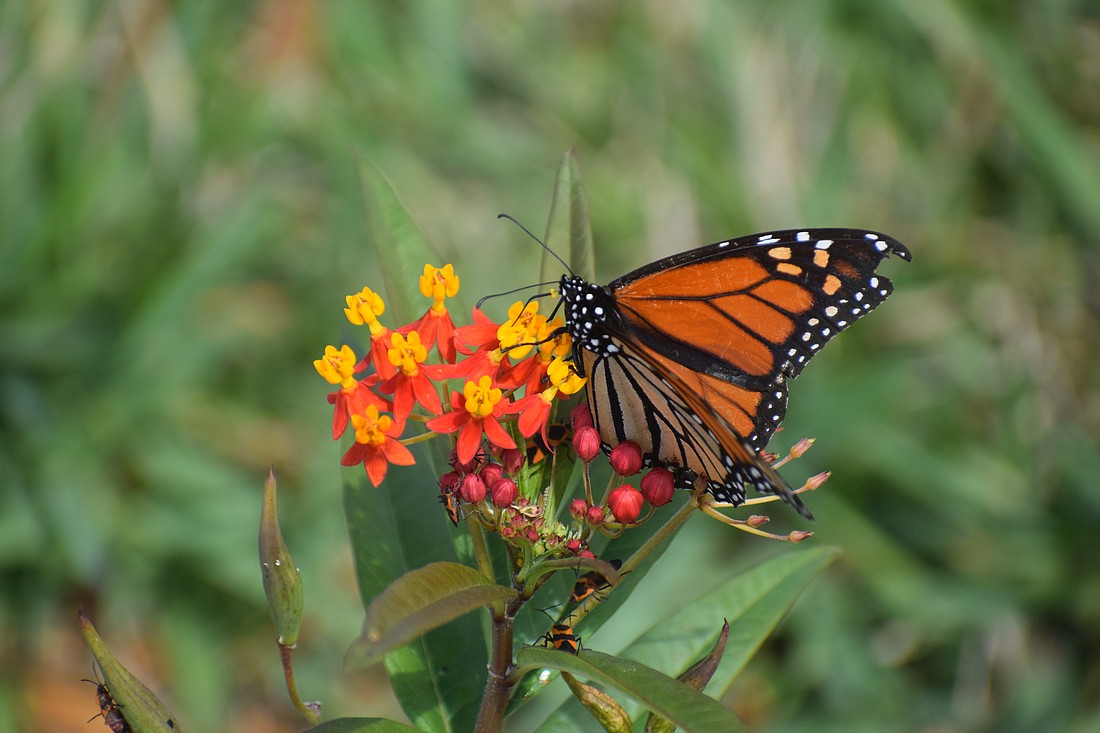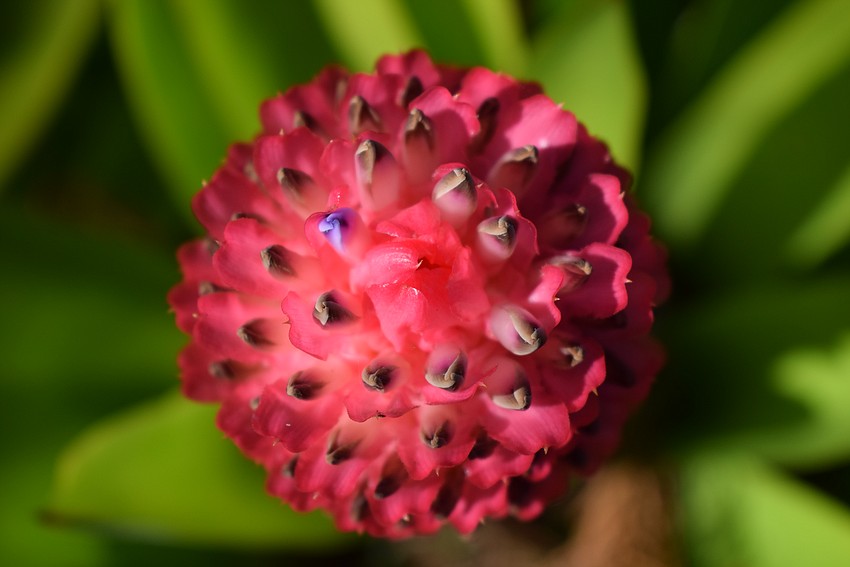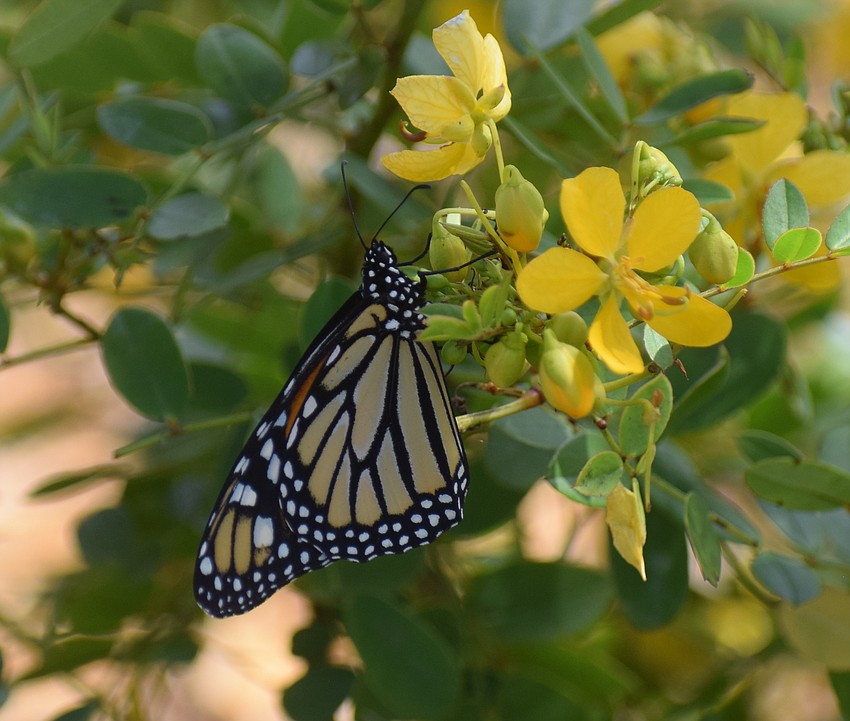- July 26, 2024
-
-
Loading

Loading

Alongside the path behind Lakewood Ranch Town Hall, you come upon a garden, simple in nature but complex in its purpose.
That garden is maintained by members of the Lakewood Ranch Garden Club, which designed it in 2005.
Among the plants are milkweed, stokes aster, trailing Lantana, powderpuff mimosa, pentas and black-eyed Susans, just to name a few. It has a wild and free feel to it, unlike the pampered gardens outside a palatial estate.
In a homeowner’s eyes, it would look kind of, well, easy.
And that’s the message of Lakewood Ranch Garden Club members Sheryl Perkins and Phyllis Weber, who would like the public to understand that using native plants and supporting local wildlife is inexpensive, relatively easy and environmentally friendly.
In some cases, it might even save money.
At 10 a.m. Feb. 13 at Lakewood Ranch Town Hall, the club is hosting guest speaker Jim West of Monarch Butterflies USA to talk about the loss of monarch butterfly habitat, the importance of that loss, and what the general public can do to help. The meeting is open to everyone.
West and her fellow Lakewood Ranch Garden Club members are hoping that if enough people get involved, Lakewood Ranch will be deemed part of Monarch City, USA, a designation showing environmental responsibility.
Monarch City, USA communities have restored habitats at public parks, community gardens, schools, churches and other plots of land throughout the U.S. to support not only monarchs, but all butterflies.
West will talk about how many of Florida’s native plants are perfect for supporting butterflies through the various stages of their lifecycles.
Perkins and Weber said with a little effort, the Lakewood Ranch area can provide much needed support of these important pollinators.

The club’s own garden at Town Hall has been maintained over the years with less than $300 a year, although the size of the garden is far bigger than most residents would plant at their home.
“In 2005, there weren’t any big trees here,” Weber said, looking around at several tall trees. “That cypress over there was a stick. That live oak was the only big tree.”
The Lakewood Ranch Garden Club also is hoping that area Homeowners Associations will get involved in the effort as well as Manatee County in its parks and open spaces.
“We can’t stop progress,” said Riverwalk’s Weber, who joined the club in 2004 and now is the Civic Beautification chair. “I just wish there was more open space. We depend on gardens so that bees, wasps, butterflies, and mosquitos — yes mosquitos — can pollinate. We’ve gotten rid of the balance of nature.”

Perkins said new businesses unknowingly get rid of important habitat for pollinators, such as monarchs.
“They think milkweed is a weed,” she said.
Weber said if more people were aware they could make a difference with a minor amount of effort, they would be willing to help.
“People have to realize there are some things they can take out (of their gardens), and some things they can put in that attract butterflies.”
COVID-19 slowed the club’s ability to spread awareness but now that things are going back to pre-COVID times, she hopes they can effectively educate the community.
“We are hoping to get back into the schools,” she said. “If people knew, they would be willing to do it.”
She said businesses and municipalities rip out important habitat for pollinators without even thinking about it. She said the roadside is one area where many of of these “butterfly plays” would thrive with little attention needed.